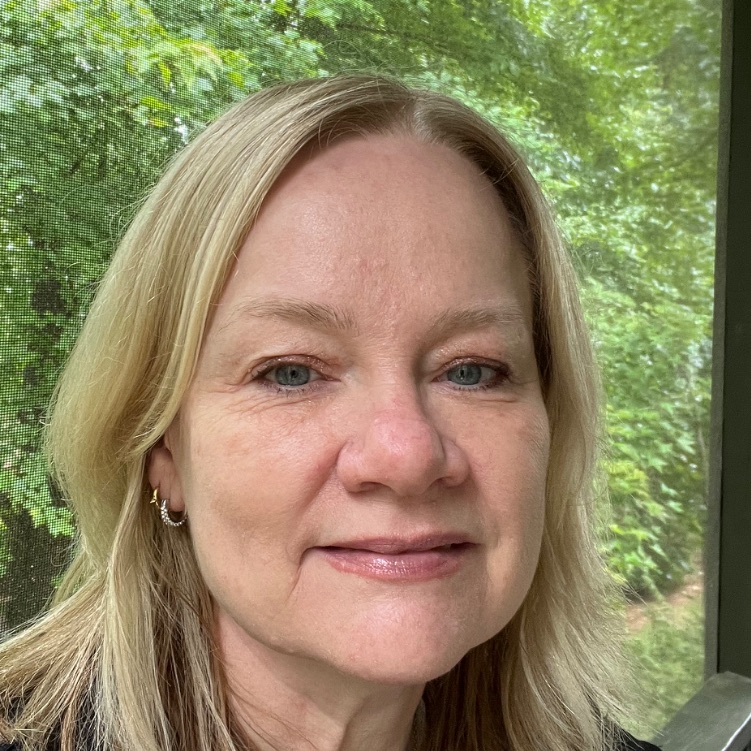Finding Support for Post-Traumatic Stress Disorder (PTSD) in Raleigh
Living with Post-Traumatic Stress Disorder (PTSD) can feel overwhelming and isolating, but you’re not alone. You’re in the right place—MiResource is here to guide you to support that fits your life, connecting you with therapists in Raleigh for care online or in person. Our trusted, easy-to-use tools make it simple to find someone who understands and can help you take the next step.
An Overview of Post-Traumatic Stress Disorder (PTSD)
Post-Traumatic Stress Disorder (PTSD) is a mental health condition that can develop after scary, painful, or life-threatening events, leading to symptoms like intrusive memories, hypervigilance, avoidance, and emotional numbness. It matters because untreated Post-Traumatic Stress Disorder (PTSD) can disrupt relationships, work, and daily life for many people in Raleigh and beyond. With compassionate, evidence-based therapy in Raleigh—such as trauma-focused CBT, EMDR, and supportive counseling—you can learn skills to feel safer, reduce symptoms, and reclaim a sense of control.
Defining Post-Traumatic Stress Disorder (PTSD)
Post-Traumatic Stress Disorder (PTSD) is a mental health condition that can develop after experiencing or witnessing a traumatic event, affecting many people in Raleigh and beyond. Common symptoms include intrusive memories or flashbacks, nightmares, avoiding reminders of the event, feeling on edge or easily startled, trouble sleeping, and negative changes in mood, as described by the National Institute of Mental Health and the American Psychological Association. Day-to-day life can be disrupted by difficulty concentrating at work or school, sudden panic in crowds or while driving, strained relationships, and exhaustion from poor sleep, consistent with guidance from the U.S. Department of Veterans Affairs. If you’d like help getting started, consider exploring the broader Post-Traumatic Stress Disorder (PTSD) therapy resources on MiResource.
Benefits of Therapy for Post-Traumatic Stress Disorder (PTSD)
Therapy for Post-Traumatic Stress Disorder (PTSD) helps you regain control, reduce distressing symptoms, and rebuild a sense of safety and hope in daily life in Raleigh. Cognitive Behavioral Therapy (CBT) and Cognitive Processing Therapy (CPT) teach practical coping skills, challenge unhelpful beliefs, and improve mood and relationships. Trauma-Focused CBT supports managing triggers, improving sleep, and reducing anxiety through step-by-step skills. Prolonged Exposure (PE) gently helps you face and process traumatic memories so avoidance decreases and confidence grows. Eye Movement Desensitization and Reprocessing (EMDR) helps your brain reprocess trauma, lowering intensity of flashbacks and making everyday stress more manageable—proof that therapy works and healing is possible.
The Therapy Journey – What to Expect
Starting Post-Traumatic Stress Disorder (PTSD) therapy in Raleigh typically begins with a compassionate initial assessment, where you share your history, current symptoms, and hopes for care at a pace that feels safe. Together, you and your therapist set clear, realistic goals—like reducing nightmares, easing hypervigilance, and rebuilding daily routines—so progress feels measurable and meaningful. Ongoing sessions blend evidence-based approaches such as trauma-focused CBT, EMDR, Cognitive Processing Therapy, and Prolonged Exposure, tailored to your needs and preferences. Your therapist will collaborate with you on coping skills, grounding techniques, and step-by-step trauma work, adjusting the plan as you grow. Expect a supportive, consistent partnership that respects your boundaries, honors your strengths, and helps you move forward with confidence.
Tips for Choosing the Right Therapist in Raleigh
Enter Raleigh as your location on MiResource, then select Post-Traumatic Stress Disorder (PTSD) under “Condition” to see providers who specialize in trauma care. Use the Therapy Approach filter to focus on options like trauma-focused CBT, EMDR, or exposure-based therapies that match your preferences. Narrow results by Insurance to see clinicians in-network for your plan, and choose your preferred Language to ensure smooth communication. Set Availability to days and times that work for you, and refine by Raleigh neighborhoods (e.g., Downtown, North Hills, Five Points, Cameron Village, Brier Creek) or telehealth if that’s easier. As you review profiles, prioritize personal fit—read bios, note specialties, and consider communication style and cultural alignment. Start your search on MiResource now, compare a few top matches, and send messages or request appointments to take the next step.
Why a Local Raleigh Therapist Can Make a Difference
Raleigh’s culture blends a research-driven mindset with strong neighborhood ties, faith communities, and a growing veteran and first-responder presence, all of which shape how Post-Traumatic Stress Disorder (PTSD) is understood and treated. Therapists here are attuned to stressors tied to rapid growth, academic and tech pressures around NC State and the Research Triangle, and community-specific trauma like domestic violence or disaster-related events. Access to restorative green spaces—Dorothea Dix Park, the Capital Area Greenway, and Umstead State Park—lets clinicians integrate grounding and exposure work in familiar settings. Many providers also collaborate with churches, campus groups, and veteran networks to reduce stigma and tailor care for military, student, and diverse cultural communities.
Getting to sessions can be easier with GoRaleigh and GoTriangle routes, Amtrak at Union Station for regional clients, and straightforward driving via I‑40, I‑440, US‑1, and US‑70; neighborhoods like Downtown, Glenwood South, Five Points, Oakwood, the Village District, North Hills, and Brier Creek offer multiple office options and parking. Local weather—hot, humid summers, heavy spring pollen, thunderstorms, and occasional hurricane-season disruptions—can be integrated into in-person planning (e.g., exposure hierarchies that consider heat, crowds, or storm triggers). Being seen by a therapist who knows Raleigh’s rhythms—from weekend festivals on Fayetteville Street to game-day surges near PNC Arena—helps translate Post-Traumatic Stress Disorder (PTSD) skills to real-world triggers you actually face. In-person care also facilitates coordinated referrals to nearby medical, legal, and housing supports when safety or stability is an issue.
Helpful Post-Traumatic Stress Disorder (PTSD) resources include the VA’s National Center for PTSD, NIMH , and SAMHSA’s treatment locator . Local options: Alliance Health (Wake County’s behavioral health plan) 24/7 Access and Information Line 800‑510‑9132; NC Mobile Crisis (Therapeutic Alternatives) 1‑866‑275‑9552; InterAct of Wake County for domestic/sexual violence services ; Triangle Family Services; SAFEchild; UNC Health WakeBrook Crisis and Assessment Services; Raleigh VA Outpatient Clinic (via Durham VA Health Care System).
Emergency options: call or text 988 (press 1 for the Veterans Crisis Line), dial 911 for imminent danger, or go to the nearest emergency department—WakeMed Raleigh Campus, UNC Health Rex Hospital, or Duke Raleigh Hospital.
Post-Traumatic Stress Disorder (PTSD) Therapy in Raleigh: FAQ Guide
When should I consider seeking help for Post-Traumatic Stress Disorder (PTSD)?
Consider seeking help for Post-Traumatic Stress Disorder (PTSD) if your symptoms persist or worsen over time, or if they interfere with your daily life, work or school, sleep, or relationships. It’s also important to reach out if you notice increased distress, avoidance of places or reminders, or if you feel on edge, numb, or disconnected. If you have thoughts of self-harm or feel unsafe, please seek help immediately. Early support makes a big difference, and you can access both in-person and virtual Post-Traumatic Stress Disorder (PTSD) therapy in Raleigh.
What if I don’t click with my therapist right away?
It’s common not to click right away—many people try more than one therapist, and a strong therapeutic alliance is linked to better Post-Traumatic Stress Disorder (PTSD) outcomes. You can switch anytime, and MiResource helps you compare therapists’ approaches, insurance, and availability across Raleigh to find the right fit.
Does online therapy really work for Post-Traumatic Stress Disorder (PTSD)?
Yes—online therapy can be effective for Post-Traumatic Stress Disorder (PTSD), offering access to evidence-based treatments like CBT and EMDR with added convenience, privacy, and no commute across Raleigh. It’s a good fit if you prefer flexible scheduling or have mobility or childcare constraints, but it does require a reliable internet connection and a private space at home. In-person Post-Traumatic Stress Disorder (PTSD) therapy in Raleigh may be preferable if you have severe symptoms, frequent dissociation, safety concerns, or would benefit from closer monitoring and grounding support. It can also help if you want options like intensive sessions or coordination with local resources and group programs.
How do I prepare for my first session?
Preparing for your first session can feel like a big step—here are simple ways to make it easier and feel more in control.
Steps to get ready:
1) Clarify your goals: jot down what you hope will improve (sleep, panic, nightmares, relationships, work).
2) Note symptoms and triggers: recent stressors, flashbacks, avoidance, body sensations, and what helps even a little.
3) Gather practicals: complete intake forms, verify insurance/costs, confirm location/parking, and arrive a few minutes early.
4) Plan comfort and grounding: identify calming strategies (breathing, fidget tool, music) you can use before/during/after the session.
5) Set boundaries: decide what you’re ready to share now and what can wait; it’s okay to go at your own pace.
6) Arrange support: line up a calm activity or trusted person to check in with after the appointment.
What to bring:
- Photo ID, insurance card, payment method
- List of medications/allergies and any past treatment notes
- Brief notes on symptoms, triggers, and questions
- Water, tissues, and a small comfort item (if helpful)
- A journal or phone for notes
What to expect:
- A welcoming check-in and review of consent, confidentiality, and its limits
- Gentle questions about your history, current symptoms, strengths, and goals
- Screening forms and discussion of treatment options (e.g., EMDR, CPT, PE)
- Collaborative pace-setting and grounding if you feel overwhelmed
- Next-step planning and how to reach your therapist between sessions
Questions you might ask:
- What experience do you have treating Post-Traumatic Stress Disorder (PTSD) and trauma like mine?
- Which therapy approaches do you use and why? What does a typical session look like?
- How will we set goals and track progress? How long might treatment take?
- How do you handle triggers or flashbacks in session, and what coping skills will we build?
- What support is available between sessions, and how do you coordinate with other providers?
If you’re seeking Post-Traumatic Stress Disorder (PTSD) therapy in Raleigh, know that it’s okay to take things one step at a time—your comfort and safety guide the process.
Can therapy truly help with Post-Traumatic Stress Disorder (PTSD)?
Yes—trauma‑focused therapies like Prolonged Exposure, Cognitive Processing Therapy, and EMDR are strongly supported by research, with about 60–80% of adults seeing meaningful symptom relief, often within 8–16 sessions. Benefits commonly include fewer nightmares and flashbacks, reduced hypervigilance, improved sleep and mood, and better relationships and daily functioning. Consistency matters: attending regular sessions and practicing skills between visits leads to better, longer‑lasting results. In Raleigh, you can access trained Post-Traumatic Stress Disorder (PTSD) therapists in person or via telehealth to create a plan you can stick with.













